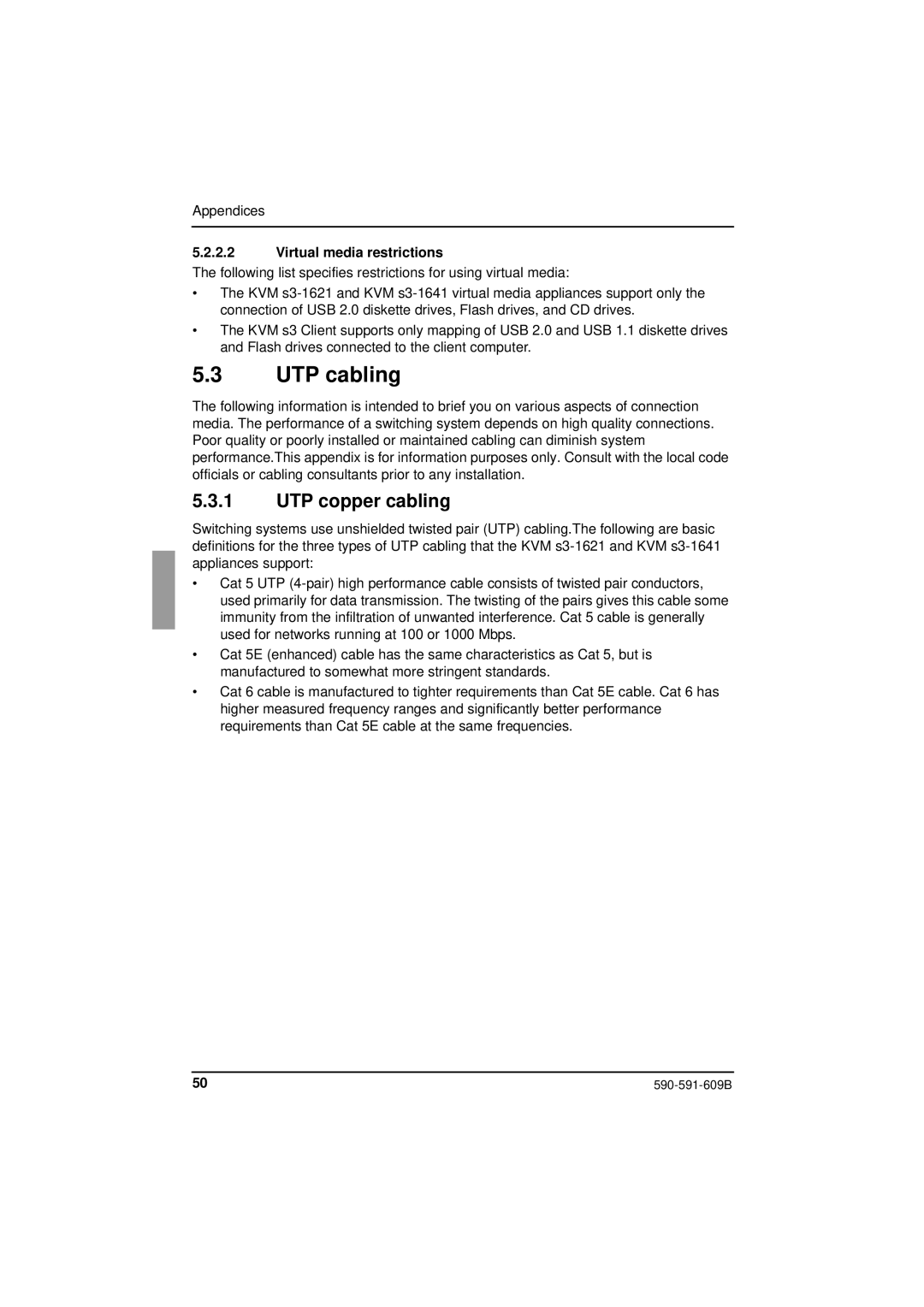
Appendices
5.2.2.2Virtual media restrictions
The following list specifies restrictions for using virtual media:
•The KVM
•The KVM s3 Client supports only mapping of USB 2.0 and USB 1.1 diskette drives and Flash drives connected to the client computer.
5.3UTP cabling
The following information is intended to brief you on various aspects of connection media. The performance of a switching system depends on high quality connections. Poor quality or poorly installed or maintained cabling can diminish system performance.This appendix is for information purposes only. Consult with the local code officials or cabling consultants prior to any installation.
5.3.1UTP copper cabling
Switching systems use unshielded twisted pair (UTP) cabling.The following are basic definitions for the three types of UTP cabling that the KVM
•Cat 5 UTP
•Cat 5E (enhanced) cable has the same characteristics as Cat 5, but is manufactured to somewhat more stringent standards.
•Cat 6 cable is manufactured to tighter requirements than Cat 5E cable. Cat 6 has higher measured frequency ranges and significantly better performance requirements than Cat 5E cable at the same frequencies.
50 |
